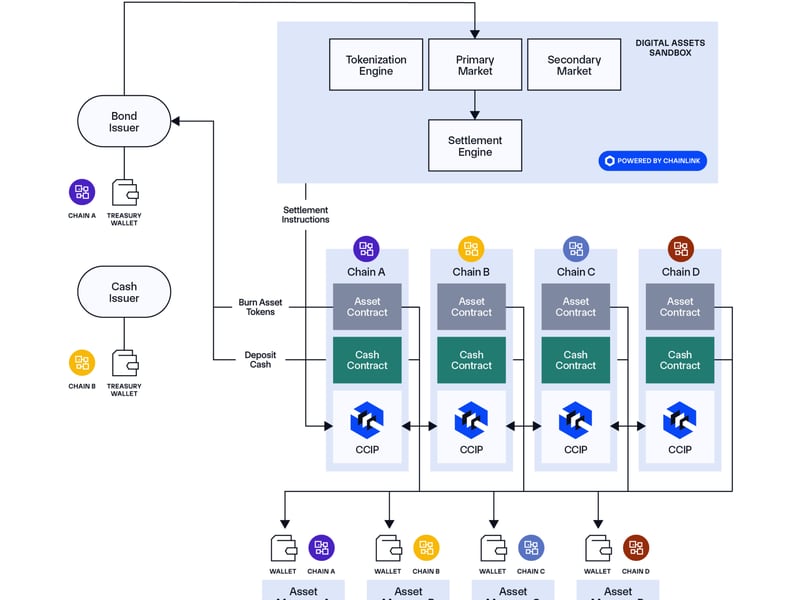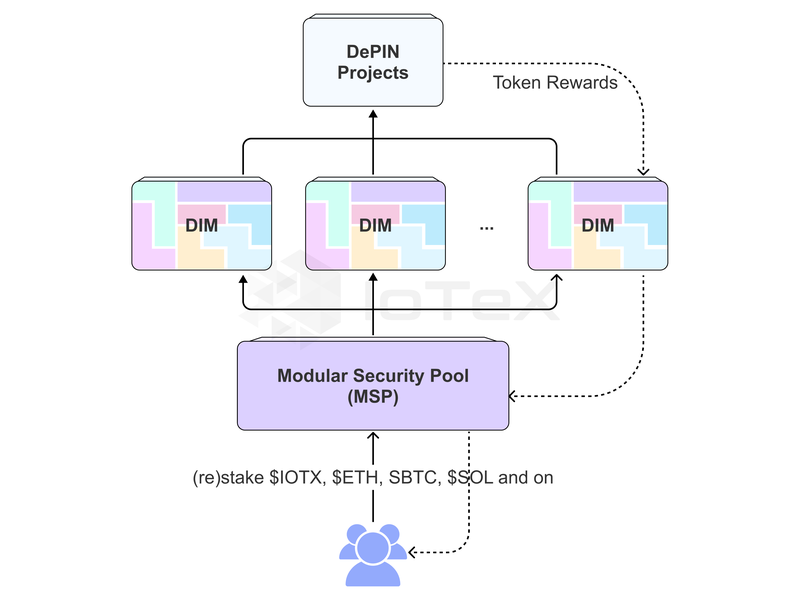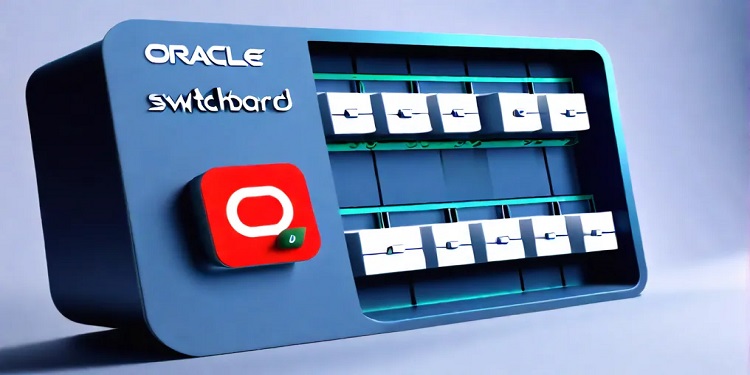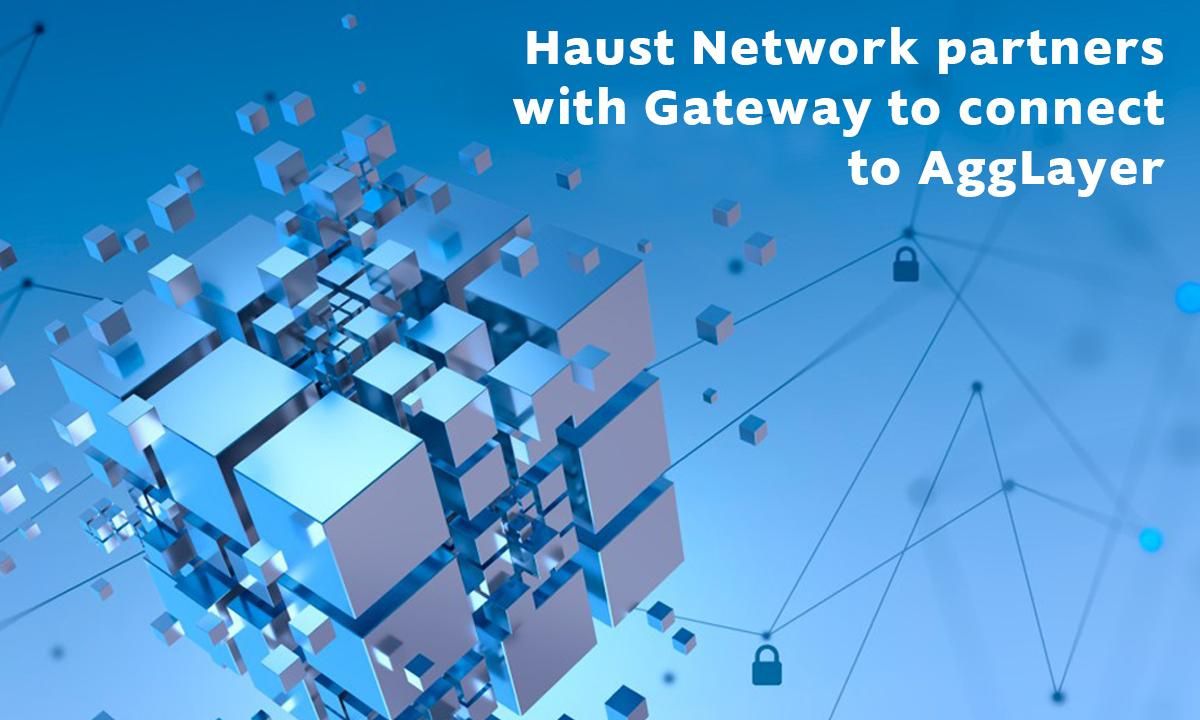DeFi
Protocol Village: Shape, Creator-Focused Ethereum L2 in Optimism Superchain, Makes Testnet Available | Currency News | Financial and Business News

(PROTOCOL VILLAGE EXCLUSIVE) July 18: Shape, a creator-focused layer-2 network atop Ethereum and part of the Optimism Superchain, announced the availability of its testnet, with GA going live in Q3. According to the team: “The network is an open space where everyone is free to create whatever they want – from high art to weird experiments. Shape ensures creators that thrive on the network share in its success through ‘Gasback.’ This mechanic rewards cultural impact directly by giving 80% of sequencer fees back to smart contract owners. Shape is powered by Optimism and, as part of the Superchain, contributes 15% of sequencer fees to the Optimism Collective to fund public goods.”
Chainlink Releases ‘Digital Asset Sandbox’ for Financial Institutions
July 18: Chainlink, the blockchain oracle project, announced the launch of the Chainlink Digital Assets Sandbox (DAS), “designed to accelerate digital asset innovation within financial institutions.” According to the team: “The Chainlink DAS is the ideal solution for financial institutions that want to quickly innovate and experience the potential of generating new revenue opportunities, increasing efficiencies, improving time-to-market, and more. With the DAS, institutions can seamlessly access ready-to-use business workflows for digital assets.” CoinDesk 20 asset: {{LINK}}
Bitrue Ventures Launches $40M Fund for ‘Nascent Web3 Companies’
July 18: Bitrue Ventures, the research and investment section of crypto exchange Bitrue, has launched a $40 million investment fund and “is putting out the call to aspiring developers,” according to the team. A blog post reads: “Individual recipients of funding can receive up to $200,000 of investment funds that can be allocated however they feel is most appropriate. In addition, Bitrue will make available their various avenues of expertise to provide further support to these projects. While Bitrue Ventures will consider investing into any niche within the crypto space, we believe that the most successful projects right now are likely to be building in the sectors of Artificial Intelligence (AI), Real World Asset tokenization (RWA), GameFi, Decentralized Physical Infrastructure Networks (DePIN), and Decentralized Finance (DeFi). As such, projects building within these industries will stand a better chance of receiving funding.”
InfStones, Blockchain Infrastructure Provider, Launches Node-as-a-Service
July 18: InfStones, a blockchain infrastructure provider, “launched its node-as-a-service (NaaS) product, empowering emerging protocols to jumpstart their DePIN projects while making sophisticated blockchain node operations accessible to mainstream users,” according to the team: “Since 2018, InfStones has provided enterprise-grade node management services to industry-leading groups such as Binance, CoinList and BitGo. In the recent node sale for cloud computing platform Aethir, InfStones’ NaaS product helped to successfully convert over 26,000 of its Checker Node license holders into long-term node operators.”
Raise to Provide Payment Rails for Polkadot Mobile App, Enabling Retail Purchases
July 18: Raise, a payments provider and with a white-label gift card infrastructure, has partnered with Parity Technologies “to provide the payment rails for the Polkadot mobile app, enabling DOT payments at over 1 million stores and websites across the U.S.” According to the team: “Users can make purchases and earn up to 20% cash back in DOT. This integration, previewed at Polkadot Decoded, bridges the gap between crypto and retail, making it easier and more rewarding to use crypto for everyday transactions. The app is set to launch in Q3, with plans to expand internationally by the end of the year.” {{DOT}}
Zivoe, RWA Credit Protocol on Ethereum, Raises $8.35M
July 18: Zivoe, a real-world asset credit protocol atop Ethereum, raised $8.35 million in their last round, aiming to broaden credit access by connecting blockchain liquidity with real-world borrowers, according to the team: “The round comes in tandem with Zivoe launching its RWA credit protocol on mainnet on July 31 and their Initial Tranche Offering (ITO), a unique liquidity bootstrapping mechanism.”
AI-Focused Layer-1 Chain Nuklai Announces Launch of DAO for Governance, Say on Use of Funds
July 18: Nuklai, a layer-1 blockchain built for artificial intelligence, announced the launch of the Nuklai DAO, “a decentralized autonomous organization designed to empower its community and ecosystem,” according to the team: “With this development, the company moves towards greater community-driven governance and collaboration. This initiative allows community to have a direct say in the allocation of these funds through proposals and votes on Commonwealth and Snapshot. The launch of the Nuklai DAO will manage the 400,000,000 NAI Community token allocation.”
Polygon, Google Cloud, Accenture Release White Paper on Web3 Loyalty Programs
July 18: Polygon Labs, in collaboration with Google Cloud and Accenture, jointly released a white paper that highlights how Web3 solutions can build high-margin loyalty programs. According to the team: “The paper highlights how users can enjoy rewards such as tokenized privileges, gamification, collectibles and community-generated content. This not only improves the user experience but also generates new revenue streams for brands while empowering users to actively participate in loyalty programs.” {{MATIC}}
Chainbase Raises $15M to Grow Omnichain Data Network
July 18: Omnichain data network Chainbase has raised $15 million in Series A funding with Tencent Investment Group, Matrix Partners and Hash Global among the investors. Chainbase is an interoperability layer that is building the “first crypto world model,” to deliver data from across the cryptocurrency spectrum, according to an emailed announcement on Thursday.
Fantom Foundation, Sonic Labs Partner With Alchemy for RPC on Opera Chain
July 18: The Fantom Foundation and Sonic Labs announced a partnership with Alchemy “in which the leading Web3 infrastructure provider immediately contributes RPC support (mainnet and testnet) and key development tools to developers on Fantom’s Opera chain.” According to the team: “Alchemy will also support the new Sonic network in the same capacity, enhancing its performance and scalability when it launches later this year.”
Outlier Ventures Partnership With Morgan Creek Digital Brings Accelerator to Latin America
July 18: Global Web3 accelerator Outlier Ventures has announced a new strategic partnership with Morgan Creek Digital, to launch their first-ever accelerator program in the Latin American region. According to the team: “The program seeks to identify startups developing solutions to drive technological and financial innovation across Latin America. The virtual program starts in September and lasts for 12 weeks, offering selected startups support from Outlier Ventures’ in-house team of experts, tailored mentorship from industry experts, networking opportunities with investors, and up to 200K investment.”
Visa’s Data Partner Allium Labs Raises $16.5M as Their New Findings Show Stablecoin Activity is Back Up
July 18: Data platform Allium Labs, which provides enterprise-grade blockchain data to companies like Visa, Stripe and Uniswap Foundation, has raised $16.5 million in a Series A funding round, it announced Thursday. The funding round was led by venture capital firm Theory Ventures whose founder Tomasz Tunguz will join the board as part of the investment. Tunguz said “The demand for cryptocurrencies and tokens has just started” and that Allium will provide the data to “foster broader adoption.”
Pundi X Launches Payment Solution for Merchants
July 18: Pundi X, a blockchain developer, has launched a crypto payment solution, Pundi X Pay for merchants, according to the team: “This innovative solution is set to transform the landscape of physical store crypto transactions with the omni QR code payment layer, making it easier for merchants and customers to embrace cryptocurrency payments. Pundi X Pay InStore QR Code features include extensive wallet integrations (over 500+ direct wallet apps), flexible payment options, instant digital receipts, and AI-powered multi-chain transactions and security: powered by Pundi X AI.”
BitGo Integrates Stacks, Enabling Delegate and Solo Stacking
July 18: BitGo has integrated Stacks, “enabling delegate and solo stacking for its clients,” according to the team: “This grants them the ability to earn BTC directly within their wallets via a secure and risk-controlled process. Additionally, BitGo now supports the Stacks token standard and acts as a network Signer, contributing to consensus and block production. This Signer role will be crucial for the future launch of sBTC, a decentralized Bitcoin-backed asset.”
Zeebit, Solana-Based Casino, to Rely on Sonic L2 Infrastructure
July 18: Zeebit, describing itself as “Solana’s first on-chain casino,” is “launching the first fully decentralized risk-on gaming platform on Solana using SonicSVM infrastructure,” according to the team: “This on-chain platform features casino classics, PVP games, and novel Web3 experiences with provable fairness and non-custodial settlement. Leveraging Sonic’s scalable L2, Zeebit will migrate its current Solana-based platform, including player histories. Supported by major Web3 VCs and incubated by Solana Labs, Zeebit’s testnet launch will offer various games, followed by a mainnet launch with incentivized campaigns.”
Aethir, DePIN for GPUs, Teams With Beamable for Cloud-Based Game Development, Distribution
July 18: Aethir, a DePIN project specializing in GPUs for AI and pixel streaming, and Beamable, a creator-centric platform for building live games, announced a “strategic end-to-end solution that will empower game studios to develop, build, scale and distribute live games entirely in the cloud,” according to the team: “With the launch of this end-to-end solution, developers will be able to store, manage, and process data all on one platform to create more engaging and scalable gaming experiences.”
Protocol Village is a regular feature of The Protocol, our weekly newsletter exploring the tech behind crypto, one block at a time. Sign up here to get it in your inbox every Wednesday. Project teams can submit updates here. For previous versions of Protocol Village, please go here. Also please check out our weekly The Protocol podcast.
TON Foundation Says Trustless Bitcoin Bridge for DeFi Launched
July 17: TON Teleport BTC, a trustless bridge facilitating secure bitcoin (BTC) transfers to and from The Open Network (TON) blockchain, has launched. According to a message from the TON Foundation team: “This development enables BTC holders to securely engage in DeFi on TON and participate in decentralized exchanges (DEXs), lending platforms, and other applications. The TON Teleport BTC process is entirely trustless and transparent, operating without a centralized issuer. Each BTC on TON is 100% backed by actual BTC, pegged through the teleport process, ensuring secure and reliable transactions.” {{TON}}
IoTeX ‘DePIN Infrastructure Modules’ to Reduce Development Time
July 17: IoTeX, an Ethereum compatible blockchain platform optimized for decentralized physical infrastructure projects (DePIN), is launching its 2.0 platform to democratize access to DePIN by partnering with NEAR, Filecoin, RISC Zero, Espresso and more, “to enhance data availability, storage, computation and sequencing,” according to the team: “IoTeX 2.0 features DePIN Infrastructure Modules (DIMs) and Modularity Security Pool (MSP) to cut development costs and support sustainable growth for DePIN projects, positioning itself as the largest decentralized hub for devices and data that will be deployed by both humans and AI agents.” According to a press release: “The introduction of Modularity Security Pool (MSP) enables DePIN layer-1s to restake their Proof-of-Stake security to DIMs, fueling growth and fostering sustainability within the ecosystem.”

This story originally appeared on Coindesk
DeFi
Is Zypto Wallet a Reliable Choice for DeFi Users?

Zypto wallet is a newcomer in the crypto landscape and has already made waves for its exclusive benefits and security features.
In this article, we will take a look at the Zypto crypto wallet and how it can help users securely manage their digital assets, interact with Web3 applications, and explore the world of Challenge.
What is Zypto Wallet?
Zypto App is a newly launched versatile crypto wallet that supports a wide range of coins and tokens, along with seamless access to Web3 applications, token exchanges, virtual crypto cards, a gift card marketplace, and a payment gateway.
What are the pros and cons of Zypto Wallet?
Benefits
- User-friendly: Zypto’s user interface is very intuitive with a simple setup process.
- Multi-Chain DEX Swaps: Zypto facilitates trading between thousands of cryptocurrencies, thanks to its versatile multi-chain token swap feature.
- Built-in dApp Browser: You can access Web3 applications directly in your wallet using the in-app dApp browser.
- Live Customer Support: The wallet has an in-app live customer support team that responds quickly to all your queries.
- Rewards Program: Zypto has a loyalty program that allows you to earn rewards, improving the overall user experience.
- Virtual crypto cards: The wallet makes it easy and reliable to use digital currencies for everyday transactions through its range of virtual cryptocurrency cards.
The inconvenients
- Limited analysis tools: Zypto offers advanced charting features and limited technical analysis tools that might not appeal to experienced cryptocurrency traders.
What DeFi products and services does Zypto Wallet offer?
Zypto allows you to securely manage a wide range of cryptocurrencies across multiple blockchains, acting as a user-friendly entry point into the Web3 ecosystem.
Multi-Chain Wallet
As a multi-chain wallet, Zypto supports hundreds of thousands of digital assets across different blockchains. Zypto is also committed to adding support for more chains in the coming months, expanding its universe of explorable assets.
Multi-Chain Exchange Functionality
Instead of the tedious process of selling one token on one exchange and buying another of the same type hosted on a different blockchain, Zypto offers a cross-chain swap feature.
DApp Browser
Another easy-to-use feature is the in-app dApp browser. Simply bring up the browser from the small globe icon at the bottom of your screen and it will first take you to the Zypto homepage.
The browser provides all the features under one application so you don’t miss anything that warrants opening a separate browser.
Zypto DeFi Wallet Review
User experience
Zypto’s ease of use is one of its main advantages. Once the app is downloaded, you can view your wallet from the home screen. Other buttons at the bottom of your screen will take you to prepaid virtual cards, an Explore Zypto page, where you can send, receive, exchange, buy and sell tokens, or access the dApp browser and your contact list.
Zypto requires KYC information before processing cards, as it is part of regulatory compliance. Contacts are another benefit: instead of tediously copying and pasting long addresses, simply save them under a contact name.
How to set up your Zypto wallet?
To start using Zypto, simply download the app. Once installed, you’re ready to go.
You can create a new wallet by pressing the Create Wallet button or import an existing wallet by writing (or pasting) your passphrase to verify your identity. You can also import it in read-only mode, in which case you only need the wallet name and address.
Conclusion: The Verdict
Zypto is relatively new in the DeFi space, but it’s already gaining popularity among different types of users. Those who prefer everything neatly organized in one place will find the app appealing, as will those who prefer its rich features and integration with fiat payment methods over on- and off-ramp cryptocurrencies.
DeFi
Switchboard Revolutionizes DeFi with New Oracle Aggregator

Switchboard, a leading oracle network known for its permissionless and fully customizable features, has launched a revolutionary oracle aggregator. This new tool enables seamless integration of data across multiple oracle networks, including household names like Chainlink and Pyth Network. In doing so, it provides users with access to a wide range of data sources, improving the versatility and reliability of decentralized finance (DeFi) applications.
Addressing security and cost challenges in DeFi
The Oracle Aggregator is designed to address significant security and cost challenges in the DeFi sector. In 2023, the Web3 industry saw losses exceeding $500 million due to price manipulation attacks, a notable increase from $403.2 million in 2022. These attacks accounted for 33% of the total value lost due to hacks. By expanding the diversity and volume of data sources, Switchboard aims to strengthen the resilience of data streams against such malicious activities, thereby improving the overall security of DeFi platforms.
Empowering developers with customizable data streams
Switchboard’s new Oracle Aggregator allows developers to design custom data feeds that draw from a wide range of sources, both within and outside of the Switchboard platform. This flexibility allows developers to create tailored feeds that meet their specific needs, moving away from rigid templates. The platform’s permissionless nature and lack of gatekeepers ensure developers have complete control over the data feeds they create.
Switchboard CEO Chris Hermida noted that the company’s philosophy has always been to empower developers rather than constrain them. By launching Oracle Aggregator, Switchboard allows developers to use data from a variety of sources, including Pyth and Chainlink, enabling innovation and customization of their projects. Hermida noted that this new capability allows developers to break away from traditional models and take a more personalized approach to data integration.
Plug-and-Play approach for enhanced security
Switchboard’s Oracle Aggregator offers a plug-and-play approach that allows users to leverage multiple Oracle networks, enhancing data security and reliability. By aggregating data from multiple sources, developers can improve the scalability and redundancy of their data feeds, setting a new industry standard as the first generalized Oracle aggregator. This scalability ensures that projects can mitigate risks associated with data manipulation and other vulnerabilities.
One of the most notable features of Oracle Aggregator is its customizable nature. Developers can selectively choose trusted data sources, eliminating those that do not meet their standards. This level of control is crucial for projects that aim to protect their operations from potential threats.
Innovative use of secure execution environments
Switchboard uses Trusted Execution Environments (TEEs) to ensure that data aggregation occurs entirely off-chain. This innovative approach minimizes gas costs associated with on-chain operations while preserving data integrity. Aggregated data is then shared with users in a single on-chain transaction, simplifying the process and reducing operational expenses.
Mitch Gildenberg, Switchboard’s CTO, highlighted the platform’s developer-centric design. He noted that the platform is designed to put developers in control, allowing them to fine-tune each data flow to their specific needs. This approach reflects Switchboard’s commitment to understanding and meeting developer needs.
Expansion and impact on the industry
Since its launch in 2021, Switchboard has seen significant growth, amassing over 180,000 users and achieving a total valuation of $1.6 billion. The company’s commitment to user autonomy and inclusion has been a driving force behind its rapid expansion in the Web3 ecosystem. Earlier this year, Switchboard raised $7.5 million in a Series A funding round co-led by Tribe Capital and RockawayX, with additional support from leading investors including the Solana Foundation, Aptos Labs, Mysten Labs, Subzero Ventures, and Starkware.
Conclusion
As the DeFi industry continues to evolve, tools like Switchboard’s Oracle Aggregator will play a crucial role in building robust and secure decentralized applications. By giving developers the ability to integrate and customize data feeds from multiple sources, Switchboard is setting new industry standards, driving innovation, and improving the overall security of the Web3 ecosystem.
DeFi
Bitcoin is the solution to inevitable hyperfinancialization

Disclosure: The views and opinions expressed here belong solely to the author and do not represent the views and opinions of the crypto.news editorial team.
If there is one thing that is becoming clear, it is that hyperfinancialization is inevitable, and our best chance of achieving it successfully is through Bitcoin (Bitcoin). This decentralized cryptocurrency, known for its fixed supply and robust security, offers a unique solution to the coming problem of wealth inequality and concentrated power. By embracing Bitcoin, we can create a more transparent and resilient financial future, or we risk losing our financial sovereignty to a handful of corporations.
The hyper-financialization of the world has already begun, with the financial sector becoming a relatively larger part of the economy, in terms of size and importance. Financial structures are also expanding rapidly in other sectors.
For example, in 2023, Americans spent more than $100 billion on state-run lotteries, according to According to The Economist, the poorest citizens spent huge amounts on tickets. In addition, the online sports betting market, valued at more than $100 billion, is projected to generate nearly $46 billion in revenue this year, with a user penetration rate of 3.9%.
Moreover, Robin HoodRobinhood, a commission-free investment platform popular with retail investors, saw its funded customers climb to 23.9 million and its assets under custody soar to $129.6 billion, another prime example of the hyper-financialization trend. Robinhood began to gain traction during the COVID-19 pandemic in 2020, and the hyper-financialization trend was exacerbated. For people stuck at home, the online world became their primary means of entertainment and social interaction.
Governments then injected billions of dollars into the market, encouraging people to bet their money on the markets. The subsequent surge in inflation and the weakness of the global economy further intensified this trend, with people having to bear the burden of survival.
This has led to an increased proliferation of financial structures in different spheres of life, meaning that both manufacturers and consumers are taking this route.
As we can see, cryptocurrency has grown from less than $150 billion in March 2020 to $2.7 trillion today. This explosive growth not only accelerates the trend towards the hyperfinancialization of finance with yield farming, resttaking, points, rewards and meme coins, but also that of art via NFTs, social dynamics via social tokens and platforms like Friendtech, game with play-to-win conceptsand physical assets through tokenization.
There are also prediction markets that allow people to bet on all sorts of events. These range from the outcome of the 2024 US presidential election to whether Bitcoin will hit $100,000 by the end of the year, whether Drake’s verse in “Wah Gwan Delilah” is an AI, what the opening weekend box office of “Bad Boys: Ride or Die” will be, or whether the Fed will raise rates this year.
This growing trend towards hyper-financialization is detrimental to society because it widens already large wealth gaps by increasing wealth concentration and contributing to economic inequality. Not to mention that it will lead to even larger asset bubbles, a focus on the short term at the expense of the long term, and an increased interest in speculative investments.
Here, cryptography can help find a better way to address hyperfinancialization. After all, the wealth is in the middlemen, and using blockchain technology removes this third party from the equation, bringing reliability, traceability, and immutability to the market. Blockchain actually allows hyperfinancialization to be fair and transparent.
Before the advent of cryptocurrencies, not everyone was allowed to participate in markets. But through disintermediation and permissionlessness, cryptocurrencies have made markets more efficient and accessible. Not to mention, everyone gains full control over their data, mitigating the risk of data manipulation and privacy violations.
This is where Bitcoin offers the perfect solution. This decentralized peer-to-peer network enables financial inclusion and censorship resistance, which is critically important in today’s world where organizations and governments are encroaching on people’s rights. This network has a decade-and-a-half-old history behind it, providing a robust and secure platform for people to achieve financial sovereignty.
This trillion-dollar asset class also serves as a hedge against inflation, allowing holders to preserve their wealth over time. Unlike fiat currencies, which are devalued by politicians, Bitcoin’s fixed supply and decentralization protect it from such pressures, making it the perfect asset to own in a world where everyone is competing to extract value.
The largest crypto network is now also seeing experimentation, as developers and investors use it as a foundation to build a truly decentralized future of finance and value.
For so long, Bitcoin has been a low-activity blockchain, with its key role being to store value. While Bitcoin has played a passive role in the blockchain world for all these years, it has finally changed with Taproot Upgrade which brought NFTs into the Bitcoin world. Then there was a growing interest in tokenization, also from institutions like Blackrock.
This drive to expand Bitcoin’s utility has sparked a wave of innovation, and the day is not far when BTC could dethrone Ethereum as the go-to blockchain for decentralized finance. Several aspects, including Bitcoin’s robust security framework, widespread acceptance, and institutional interest, position Bitcoin at the forefront of defi innovation.
So, with these developments, Bitcoin is now evolving to begin its new era of utility and innovation after realizing its original vision of being a peer-to-peer electronic currency system.
As everything becomes a financial asset and tradable, attention, which is a scarce resource, will become even more crucial. Bitcoin has already cemented its position in the attention economy, and the newfound interest in regulatory complaints and widespread adoption of BTC to boost productivity will allow it to lead the future of digital economies. This portends a world where crypto leads the charge towards hyperfinancialization, with BTC in the driver’s seat.
So, to conclude, the resilient Bitcoin network that has spectacularly survived the test of time may have started as a means to facilitate the seamless flow of monetary value, but today, it has become a foundation of hope not only to protect against a future that is going to be super fixated on the financial aspect, but also to take advantage of it to create wealth and prosper.
Jeroen Develter
Jeroen Develter is the Chief Operating Officer at Persistence Labs and a seasoned professional in financial and tech startup environments. With a decade of international consulting, management, entrepreneurship and leadership experience, Jeroen excels at analyzing complex business cases, establishing streamlined operations and creating scalable processes. With Persistence, Jeroen oversees all product and engineering efforts and is deeply passionate about improving the adoption of Bitcoin defi, or BTCfi, and using intents to develop scalable, fast, secure and user-friendly solutions. His work at Persistence Labs addresses the significant interoperability challenges between Bitcoin L2s. In addition, Jeroen is also a co-host of the Stacked Podcast, a platform to gain knowledge about Bitcoin and cryptography from prominent Bitcoin creators.
DeFi
Haust Network Partners with Gateway to Connect to AggLayer

Dubai, United Arab Emirates, August 1, 2024, Chainwire
Consumer adoption of cryptocurrencies is a snowball that is accelerating by the day. More and more people around the world are clamoring for access to DeFi. However, the user interface and user experience of cryptocurrencies still lag behind their fundamental utility, and users lack the simple and secure access they need to truly on-chain products.
Haust Network is a network and suite of products focused on changing this paradigm and bringing DeFi to the masses. To achieve this goal, Haust Network has announced its far-reaching partnership with bridgeseasoned veterans in rapidly delivering revolutionary blockchain utilities for projects. The Gateway team empowers blockchain developers to build DAOs, NFT platforms, payment services, and more. They drive adoption of crypto primitives for individuals and institutions around the world by helping everyone build their on-chain presence.
Gateway specializes in connecting sovereign blockchains to the Aggregation Layer (AggLayer). The AggLayer is a single unified contract that powers the Ethereum bridge of many disparate blockchains, allowing them all to connect to a single unified liquidity pool. The AggLayer abstracts away the complexities of cross-chain DeFi, making tedious multi-chain transactions as easy for the end user as a single click. It’s all about creating access to DeFi, and with Polygon’s technology and the help of Gateways, Haust is doing just that.
As part of their partnership, Gateway will build an advanced zkEVM blockchain for Haust Network, leveraging its extensive experience to deploy ultra-fast sovereign applications with unmatched security, and enabling Haust Network to deliver its products to its audience.
The recently announced launch of the Haust Wallet is a Telegram mini-app that provides users with access to DeFi directly through the Telegram interface. Users who deposit funds into the wallet will have access to all standard send/receive services and generate an automatic yield on their funds. The yield is generated by Haust Network’s interconnected network of smart contracts, Haustoria, which provides automated and passive DeFi yielding.
As part of this partnership, the Haust Network development team will work closely with Gateway developers to launch Haust Network. Gateway is an implementation provider for Polygon CDK and zkEVM technology, which the Haust wallet will leverage to deliver advanced DeFi tools directly to the wallet users’ fingertips. Haust’s partnership with Gateway comes shortly after the announcement of a high-profile alliance with the Polygon community. Together, the three will work to build Haust Network and connect its products to the AggLayer.
About Haust Network
Haust Network is an application-based absolute liquidity network and will be built to be compatible with the Ethereum Virtual Machine (EVM). Haust aims to provide native yield to all users’ assets. In Telegram’s Haust Wallet, users can spend and collect their cryptocurrencies in one easy place, at the same time. Haust operates its network of self-balancing smart contracts that interact across multiple blockchains and then efficiently funnel what has been generated to Haust users.
About Gateway
bridge is a leading white-label blockchain provider that offers no-code protocol deployment. Users can launch custom blockchains in just ten minutes. They are an implementation provider for Polygon CDK and have already helped projects like Wirex, Gnosis Pay, and PalmNFT bring new utility to the crypto landscape.
About Polygon Labs
Polygon Laboratories Polygon Labs is a software development company building and developing a network of aggregated blockchains via the AggLayer, secured by Ethereum. As a public infrastructure, the AggLayer will aggregate the user bases and liquidity of any connected chain, and leverage Ethereum as the settlement layer. Polygon Labs has also contributed to the core development of several widely adopted scaling protocols and tools for launching blockchains, including Polygon PoS, Polygon zkEVM, and Polygon Miden, which is currently under development, as well as the Polygon CDK.
Contact
Lana Kovalski
haustnetwork@gmail.com
-

 DeFi1 year ago
DeFi1 year agoSwitchboard Revolutionizes DeFi with New Oracle Aggregator
-

 News1 year ago
News1 year agoLatest Business News Live Updates Today, July 11, 2024
-

 DeFi1 year ago
DeFi1 year agoIs Zypto Wallet a Reliable Choice for DeFi Users?
-

 DeFi1 year ago
DeFi1 year ago👀 Lido prepares its response to the recovery boom
-

 Fintech1 year ago
Fintech1 year agoFinTech LIVE New York: Mastercard and the Power of Partnership
-

 DeFi1 year ago
DeFi1 year agoEthena downplays danger of letting traders use USDe to back risky bets – DL News
-

 Fintech1 year ago
Fintech1 year ago121 Top Fintech Companies & Startups To Know In 2024
-

 ETFs1 year ago
ETFs1 year agoGold ETFs see first outing after March 2023 at ₹396 cr on profit booking
-

 DeFi1 year ago
DeFi1 year agoTON Network Surpasses $200M TVL, Boosted by Open League and DeFi Growth ⋆ ZyCrypto
-

 Fintech1 year ago
Fintech1 year agoFintech unicorn Zeta launches credit as a UPI-linked service for banks
-

 ETFs1 year ago
ETFs1 year agoLargest US Bank Invests in Spot BTC ETFs While Dimon Remains a Bitcoin Hater ⋆ ZyCrypto
-

 News1 year ago
News1 year agoSalesforce Q1 2025 Earnings Report (CRM)





